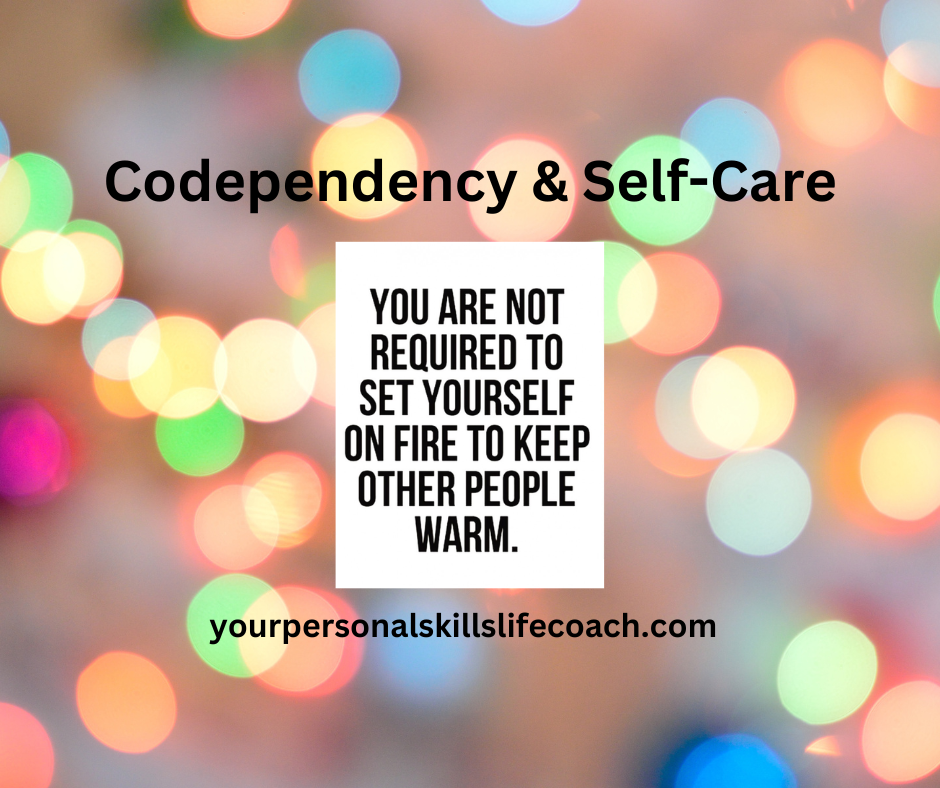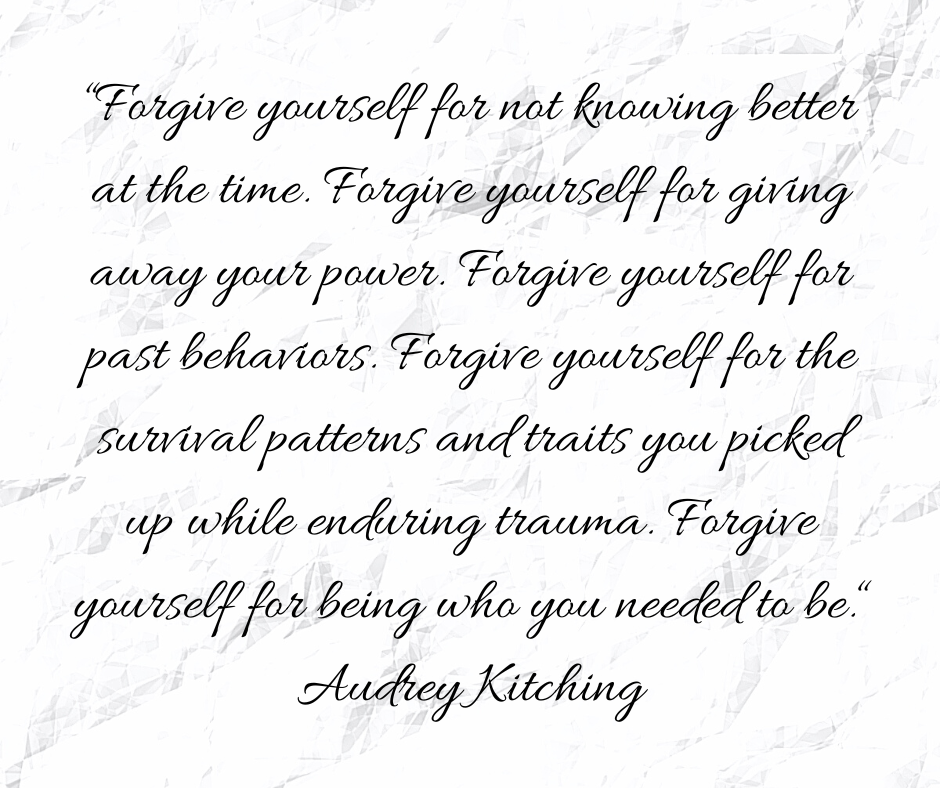The topic of codependency suggested itself while I was doing research on self-care. As you know, I am not a psychologist. This discussion does not take the place of therapy. I simply intend to open a discussion, present facts and explore ideas for us all to consider.
What is Codependency?
“The main sign of codependency is consistently elevating the needs of others above your own. Other signs include controlling behaviors, self-sacrifice, and fear of rejection.” psychcentral.com
The term “codependency” originated in the 1940s to help describe specific behavior of family members of people living with alcohol use disorder.
“However, today experts agree that codependency has a more nuanced and complex meaning — and can show up in many situations, not just ones involving substance use.” psychcentral.com
Vicki Botnick, a marriage and family therapist in Tarzana, CA, explains that codependency often involves a sense of forgetting “where you end and your partner begins. Codependency refers to any enmeshed relationship in which one person loses their sense of independence and believes they need to tend to someone else.” vickibotnick.com

Often codependent people have low self-esteem, so they look for anything outside themselves — usually other people (even their children)— to help them feel better. “Codependent behaviors toward your kids can harm your relationship with them, even increasing their risk of mental health issues down the road.” fatherly.com
As you focus more and more on providing the support you believe others need, the more heavily they may begin to lean on you, the less independent they become. Over time, it becomes increasingly difficult for either person to be independent and to end that codependent relationship.
Signs of Codependency
Codependency isn’t considered a mental health condition. Experts have yet to outline specific diagnostic criteria for it. There is, however, some general agreement on what codependency usually involves.
Signs of codependency can include:
- Minimizing your own desires and self-care
- Often doing things you don’t want to do just to make others happy
- Craving approval from others
- Fearing rejection or fearing you are unlovable
- Taking on blame to keep the peace; apologizing excessively
- Making your self-worth dependent on others
- Excessive worrying about another’s activities
- Trying to “manage” another; use of guilt to manipulate others
- Replacing your mood with another’s emotions, not your own
- Keeping no boundaries; increasingly tolerating questionable behaviors
- Feeling scared, hurt or angry; punishing others for making you feel that way
- Pretending certain situations are not as bad as they are; ignoring problems
How Self-Care Can Help
For some people, codependency is a coping strategy born from years of dealing with trauma, stress and/or fear. For them self-care is as foreign a concept as you can ever imagine. Years without emotional support, imposed feelings of guilt or selfishness make even the thought of self-care unimaginable. For others, low self-esteem is usually at the root. They feel unworthy of putting themselves first.
Codependents are givers, they struggle with being overwhelmed and unappreciated. Pleasing others makes them feel appreciated. So giving advice and stepping up for others leaves little time for practicing self-care. To overcome codependency they must believe in themselves. They must believe that changing their patterns of thoughts, feelings and actions. Prioritizing self-care can get them to a better place.
Part of changing these patterns is shifting from taking care of others to taking care of themselves and tuning into their own feelings and needs. “Self-care isn’t just a way to take care of yourself, it’s a part of healing codependency because as you learn to balance caring for yourself with caring for others you move away from the codependent pattern of self-sacrifice and martyrdom.” livewellwithsharonmartin.com
Self-care to Combat Codependency
Getting help from a professional is a sign of strength.
1. Be good to yourself. You might need to learn moderation. It’s about progress, not perfection.
2. Use positive affirmations. Everyday write down one thing you like about yourself. Each day read back some of the previous day’s affirmations before writing a new one.
3. Take care of personal hygiene and wellness.
4. Check-in with yourself once a day and ask yourself what you need. Try to do one small thing for yourself to meet that need.
5. Get the right amount of sleep. Consult your doctor if needed.
6. Develop a manageable schedule, including time for healthy eating.
7. Engage in enjoyable activities: mental, physical, and social.
8. Set boundaries. It’s ok to say no.
9. Meditate.
10. Free yourself from enabling interactions.
Dependency or Codependency?
No doubt as you read this post, it made you think about your own relationships. No one wants to go through life totally alone, and some level of dependency is healthy and normal in relationships. Most people want and enjoy social interaction. People depend on each other for help and or support. Interdependent relationships work better for both people involved. In other words, partners help each other. You can derive great comfort knowing someone has your back. You feel great pride knowing you will be there for someone when needed.
If you are able to state your own needs and desires, feel comfortable asking for support, helping your partner when asked, and honestly decline when others ask too much, you have a healthy dependence. You support others but do not sacrifice your own needs.
To conclude, I offer two quotes for you to take with you:

“Self-care is how you take your power back.“ Lalah Delia
Related Article: Codependency Test
